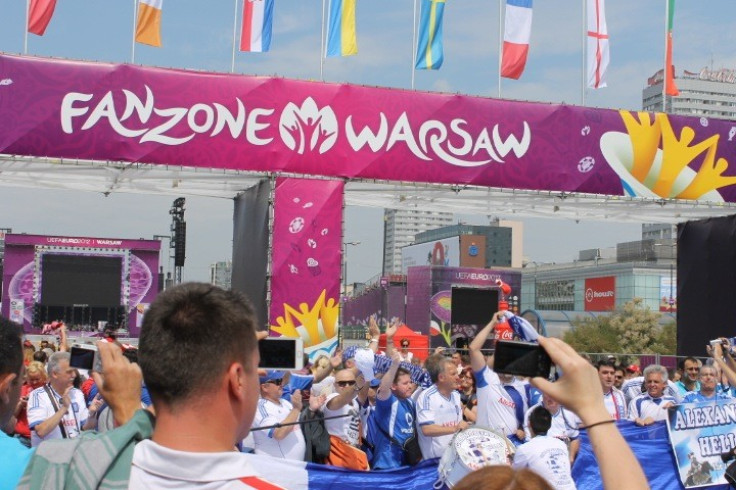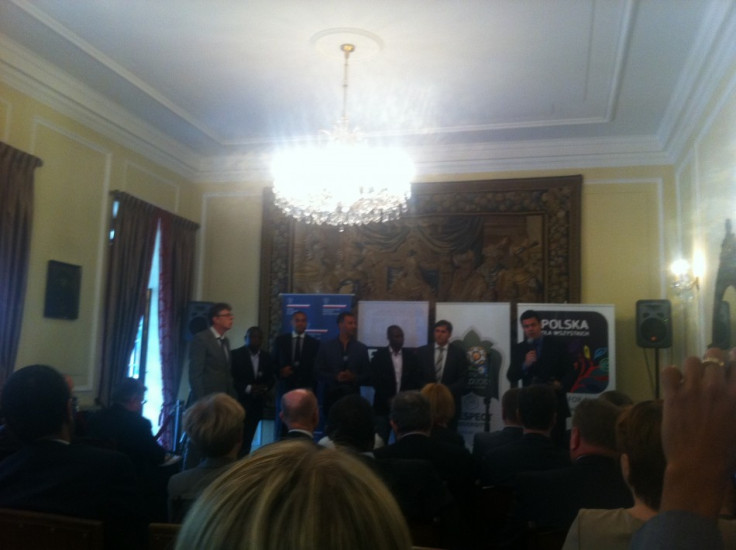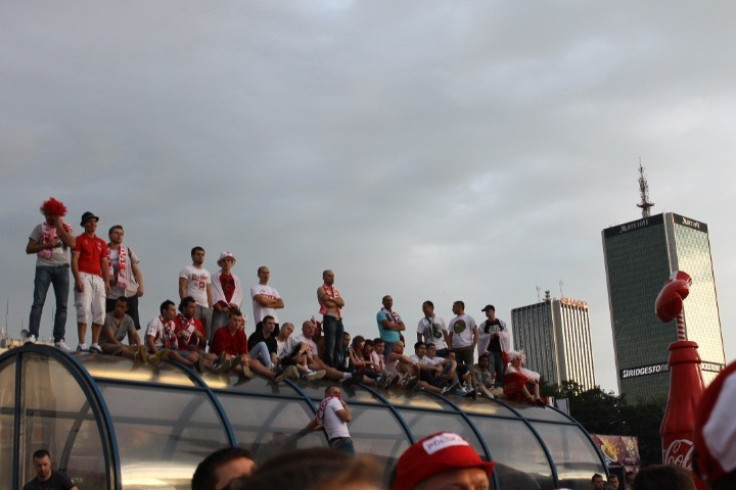Euro 2012 Blog: Football The Winner On First Day
My first day at Euro 2012 left me with a lot to think about, and a lot to celebrate
Arriving in Warsaw at around 11pm on Thursday night, a big day was following; between speaking to sponsor Carlsberg about their role in both the business and ethical side of the tournament, meeting with ex-footballers at the launch of anti-racism initiative FARE's Euro program and covering the build up to the first match around the town, a lot of issues were bound to come to light.
The first; the language barrier. Finding a phone or sim card to fit an iphone has proven so far to be completely fruitless, and being a seasoned traveller to places where English is commonly spoken, I found it particularly challenging considering I don't speak a word of Polish, and most locals haven't learnt English either.
But armed with a Warsaw map that is apparently designed for 'hipsters', I set out in the morning to the fan park to meet with Carlsberg marketing director Khalil Younes, to talk about how sponsors are now taking these events to a whole new level with 21<sup>st century marketing.
From creating recycling competitions between countries, to putting together Facebook and iphone applications to coincide with the beer stands and bars around the towns hosting the Euros, Khalil told me that these events can take a product from being outside the top three of its kind in a region to number one.

His take on the racism debate, particularly going on in England in the aftermath of the Panorama program, was equally interesting, with Khalil insisting that Carlsberg supported UEFA's decision to take the tournament to Poland and the Ukraine because it highlighted the issues and forced people to confront and talk about them.
Much debate in the UK has taken place over whether the Panorama program was sensationalist, and whether it accurately represented the attitudes of Polish and Ukrainian society. Obviously the scenes shown in the documentary were of a minority, but an issue that has been glazed over by many involved in the debate is whether UEFA should be taking tournaments to nations who need to bring light to societal problems such as racism.
But at FARE's launch for their Euro 2012 program, the likes of Dutch legend Ruud Gullit and Ukrainian Football Assocation president Hrihoriy Surkis both insisted that bringing tournaments to countries with racial issues would assist the world as a whole to move into the 21st century and realise these actions are no longer acceptable.

While all this was taking place off the field, fans around Warsaw's city centre seemed much more concerned with Poland's meeting with Greece on it. The Greek fans put on a show at the start of the day, but were soon wildly outnumbered by a sea of red and white.
At the fanpark, there was hardly a Greek to be seen, and Polish fans turned their backs on any occupational health and safety precautions to climb on anything climbable to catch a piece of the action from the big screen.

Carlsberg had said they expected 100,000 in the centre of the city for the opening match, and it looked like they got it, though the cheers of the crowd turned to a hushed anxiety very quickly as the game took multiple twists.
Two red cards, a missed penalty, two goals and endless chances later, despite the 1-1 draw, people took to the streets to celebrate. And though it had begun unlike many tournaments, with controversy a huge topic of discussion, the first day of the Euros ended like every other, with fans raising their glasses and reflecting on an entertaining match.
© Copyright IBTimes 2024. All rights reserved.





